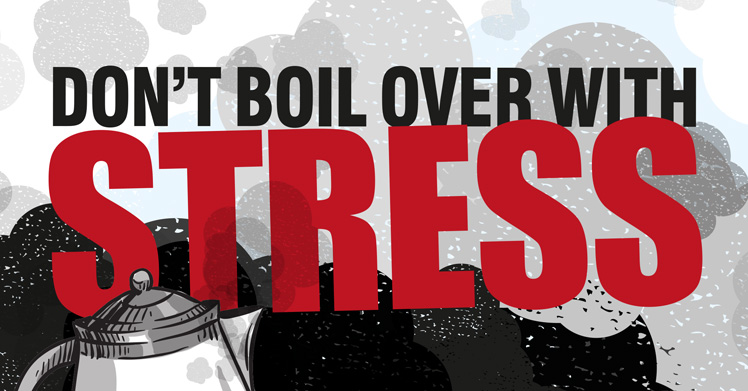Modern life is full of challenges, stress and pressures, and the dental profession is no exception. But instead of accepting stress as an inevitable part of life, it is important that dentists effectively address the causes before it impacts on their professional and personal lives. Stress can impact on a dentist’s health and practice in a number of ways. It could affect their confidence, clinical judgement, morale and even lead to performance issues. Here, David Croser from Dental Protection reflects on ways to manage stress to ensure best practice.
Dentists face significant pressures within the profession from a variety of sources which all contribute to stress and anxiety within the service, such as:
- Rising patient expectations
- Heavy workloads
- Complex treatment options
- Negative media coverage
- An increased fear of being sued.
These aspects of dentistry can have a detrimental impact on dentists, leading to burn-out and potentially placing professional standards and patient safety at risk. Such factors may also contribute to a fear of litigation and formal investigation. Here’s my five top tips on how to alleviate stress:
1. Review stress factors
Consider the factors in the clinical setting that can lead to stress or anxiety. These factors could include improving communication with patients, maintaining accurate patient records, better understanding of patient expectations and learning from adverse events.
This review process will help you to improve patient safety and reduce the risk of complaints. It will also aid in developing a better understanding of what stress ‘looks like’ and what action can be taken to control it.
2. Speak with your defence organisation
High quality, collegiate support and legal representation can be invaluable when you are facing a claim, complaint, or GDC or disciplinary hearing, and often they will recognise the signs that you need to ask for and accept help.
Often dentists can be too embarrassed to consult their own GP, but your defence organisation will be supportive and encourage you to accept help, where appropriate.
3. Attend conferences and events
Reduce the chance of receiving a complaint or claim by going to tailored events around key clinical, legal and ethical issues faced by dentists. Look in your local area for events or workshops aimed at how to deal with challenging interactions, better manage your risks, improve your communication and focus on delivering improved patient care.
4. Talk to a professional
This is an avenue to deal with stress through open, caring dialogue with fully trained, qualified and registered psychologists – either face-to-face or via telephone or online chat services.
This type of confidential and independent service is often the best way of identifying and dealing with the issues that are at the core of stress and anxiety problems.Dentists accessing this service through their defence organisation should bear in mind that this is only available to those facing a claim.
5. Look after yourself
Work-life balance is really important in helping to alleviate stress symptoms. Spending time with family and friends, taking up a hobby or going on holiday will help you to maintain a clear focus and positive outlook.
It goes without saying that regular exercise, eating well and keeping hydrated will also help in keeping you healthy and happy. Stress and anxiety can impact on the individual and the quality of their dental care – but the symptoms can be addressed and reduced through counselling, management and support.
We would like to remind dental practitioners that help is available, and that the often damaging outcomes of unmanaged stress can be effectively avoided with the right support.
About the author
David Croser has more than thirty years’ experience in general dental practice before joining Dental Protection as Communications Manager. He has a particular interest in HIV and dentistry and served as clinical lead for a dedicated clinic in Chelsea. He continues to champion the rights of dental healthcare workers living with HIV. For more information, visit www.dentalprotection.org
[mc4wp_form]
